Ngondo
The Ngondo is an annual water-centered festival held by the Sawa (coastal peoples) in Douala, Cameroon. The highlight of the festival is a ceremony of the jengu cult. The ceremony is held at a beach on Wouri Bay, during which a devotee enters the water to visit the underwater kingdom of the miengu (plural for jengu). The miengu are believed to be similar to mermaids, and will grant good luck to their worshippers. According to tradition, the devotee can remain underwater for hours, and emerge with his clothing appearing completely dry. Children are not allowed to attend the ceremony. Ngondo was banned by the government of Cameroon in 1981, but reinstated in 1991. The ceremony is held during the first two weeks of December every year.[1]
Ngondo messenger on Wouri River
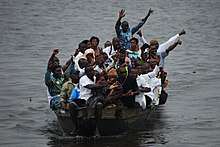
Spectators on a crowded boat
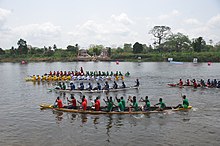
Youths in canoes in the Wouri River during Ngondo Festival
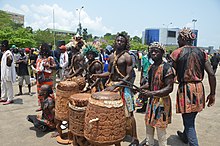
Traditional drums and drummers during Ngondo festival
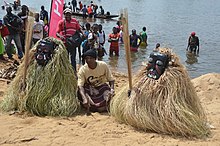
Traditional rituals during Ngondo festival
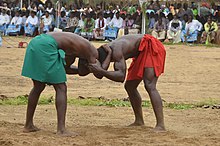
Traditional wrestling Ngondo festival
A wise
Ngondo Authority
Gallery
- Women with blue Kaba
- Woman with green Kaba
- Women with black Kaba
- Women with striped Kaba
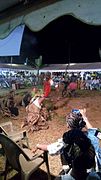 Festival evening
Festival evening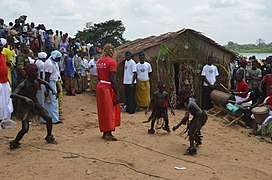 Ritual
Ritual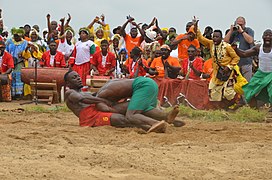 Ngondo Traditional wrestling
Ngondo Traditional wrestling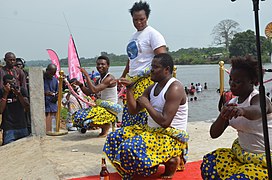 Assiko Dancers
Assiko Dancers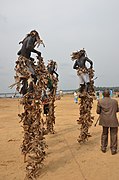
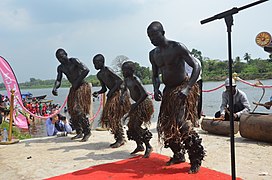
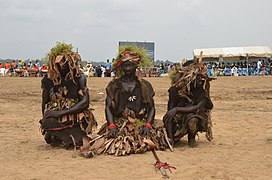
 swimming competition
swimming competition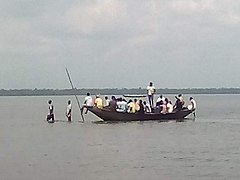 Ritual pirogue
Ritual pirogue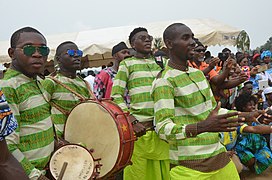 Abele singers
Abele singers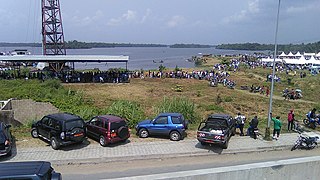 Ngondo place
Ngondo place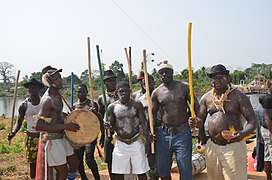 Tupuri community at Ngondo
Tupuri community at Ngondo
gollark: That doesn't really *happen*, though.
gollark: Hmm, that is very andrew of you.
gollark: It's kind of bizarre, though. If you hadn't been exposed to Christianity, *would* you just randomly gravitate to "ah yes this is OBVIOUSLY the most sensible explanation"?
gollark: ... why? Of all the possible gods, that's one of the weirder ones.
gollark: I... see.
References
- Austen, Ralph A. (1992). "Tradition, Invention and History : The Case of the Ngondo (Cameroon)". Cahiers d'Études Africaines. 32 (126): 285–309. JSTOR 4392382.
This article is issued from Wikipedia. The text is licensed under Creative Commons - Attribution - Sharealike. Additional terms may apply for the media files.